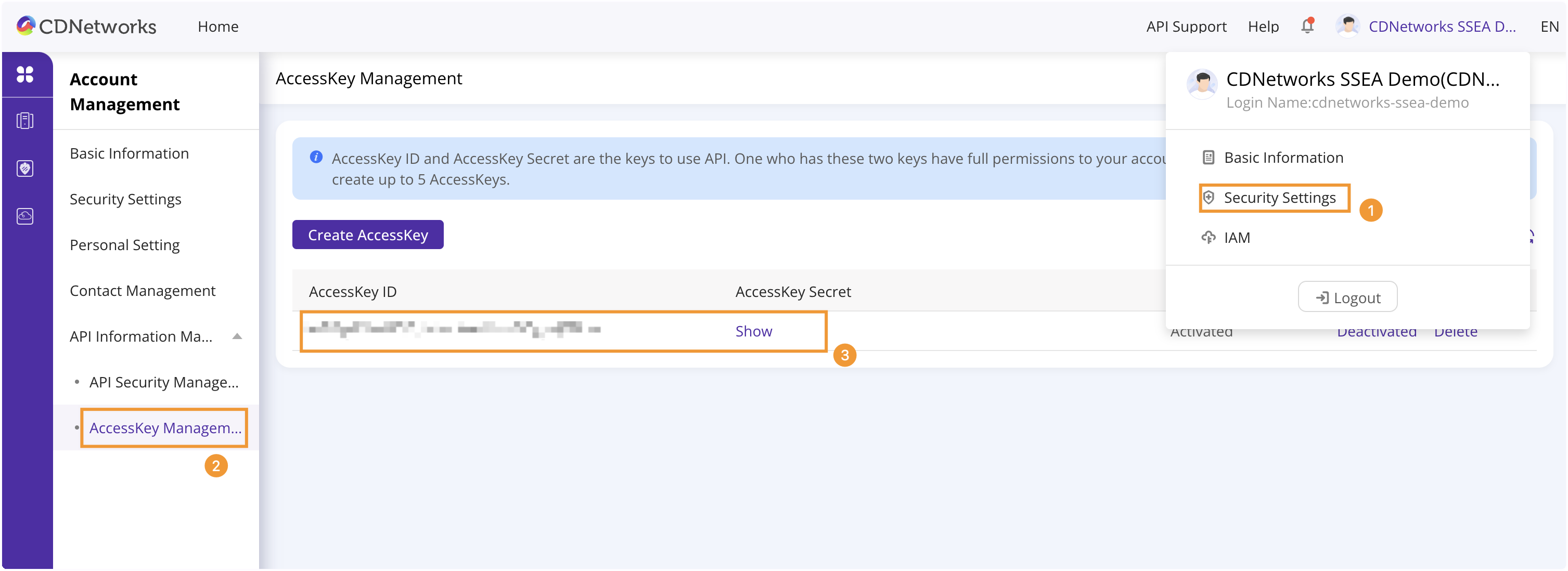Overview
Last update:2024-05-21 11:32:49
This document aims to provide you with a comprehensive guide on how to efficiently utilize the new version of the Cloud VoD API. The new API supports calls via the OpenAPI interface, simplifying the process of testing and making API calls. OpenAPI can conveniently generate sample code in various programming languages based on your input requirements.
Compatibility with the Old API: If you are currently using the old version of the API, rest assured that we will continue to support it. However, to ensure you have the best service experience, we strongly recommend that new users adopt the new API.
Issue Tracking: The new API assigns a unique ID to each request/task. This ID is returned to the client in the x-cnc-request-id field in the response header, allowing you to more effectively track and resolve issues that arise during API calls.
Note:
As our features are continuously updated, API responses may include new JSON or XML fields. To maintain compatibility and reduce the risk of errors, we recommend parsing these fields according to the JSON and XML standards rather than through direct string parsing.
Additionally, please note that each customer account has a limit of 300 API calls within a 5-minute window, and the recommended call rate for a single API is 30 calls every 5 minutes. If your business needs exceed these limits, please contact our customer support team for assistance.
Before Start
To ensure the security of API calls, all requests must be authenticated and carry a valid token. Before using the Cloud VoD API, please ensure that you have activated the Cloud VoD service and obtained the AccessKey Secret required for authentication. To get your AccessKey ID and AccessKey Secret, log in to the console and navigate to Security Settings -> AccessKey Management -> Show. Please keep these credentials secure as they are crucial for validating your API access permissions.

API Overview
Content Upload
| API | Description |
|---|---|
| getUploadToken | Get a video upload token. |
| getAudioUploadToken | Get an audio upload token. |
| getMaterialUploadToken | Get a material upload token. |
| pullVideo | Retrieve videos via URL and store them on Cloud VoD, supporting batch retrieval tasks. |
| pullVideoQuery | Query the completion status of video pull tasks. |
| upload | Upload files to Cloud VoD. If the file size exceeds 500MB, use the SDK for uploading. |
Video Management
| API | Description |
|---|---|
| getVideoList | Retrieve a list of uploaded videos and their details, including upload time, video name, video ID, and video status. |
| videoEdit | Edit basic information about the video, such as name, description, category, and publication domain. |
| videoBlock | Disable or block an uploaded video. Once disabled, the video will no longer be visible. |
| videoEnable | Re-enable a previously disabled video. |
Material Management
| API | Description |
|---|---|
| getMaterialList | Retrieve a list of uploaded materials and their details. |
| materialEdit | Edit basic information about the materials. |
| deleteMaterial | Delete materials. |
Category Management
| API | Description |
|---|---|
| createCategory | Create a category. |
| deleteCategory | Delete a category. |
| deleteVideoByCategory | Delete videos by category. |
| getCategoryList | Retrieve a list of categories. |
Video Processing
| API | Description |
|---|---|
| transCode | Transcode a specified video. |
| startWorkflow | Execute workflow operations on a specified video, mainly for batch editing video information. |
| videoClip | Clip an uploaded video. |
| videoClipQuery | Query the status and results of clipping tasks. |
| videoConcat | Concatenate multiple videos in a specified order to create a new video. |
| videoConcatQuery | Query the status and results of video concatenation tasks. |
| createClearAdTask | Create an AI-based ad removal task for a specified video (this is a value-added service, please contact customer support to enable it). |
| clearAdTaskQuery | Query the status and results of AI ad removal tasks. |
Playback
| API | Description |
|---|---|
| getPublishCode | Get URLs for playing videos in different qualities, allowing users to watch videos via these URLs. |